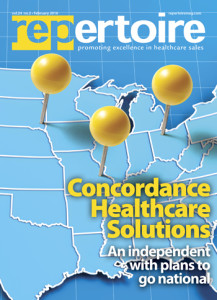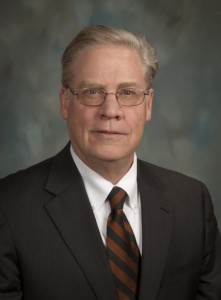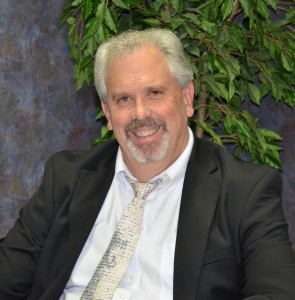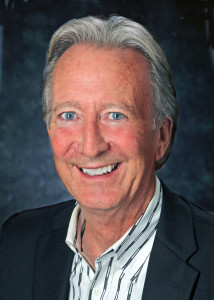An independent with plans to go national
 The three independent distributors who announced plans in December to form Concordance Healthcare Solutions say they can service providers caring for about 70 percent of the U.S. population – and maintain their independent spirit while doing so.
The three independent distributors who announced plans in December to form Concordance Healthcare Solutions say they can service providers caring for about 70 percent of the U.S. population – and maintain their independent spirit while doing so.
That means they’ll maintain local customer service, sales and warehousing, and continue to support the branded products that their customers prefer. At the same time, they intend to share their specific areas of expertise and add field reps when necessary in order to present a full-service offering – that is, one encompassing products and services for both acute care and non-acute care – to their IDN customers.
In December, Kreisers, Inc. (Sioux Falls, S.D.), MMS – A Medical Supply Company (Earth City, Mo.) and Seneca Medical (Tiffin, Ohio) announced that they had entered into a definitive merger agreement to form Concordance Healthcare Solutions, LLC. At press time, the transaction was subject to approval by the companies’ shareholders, but was expected to close in the first quarter of 2016.
Concordance will have approximately 1,000 employees, 19 distribution centers and $1.1 billion in annual sales. MMS Executive Vice President Tom Harris and Seneca CEO Roger Benz will serve as co-presidents. An operating board has been established, on which sit representatives from each of the three founding companies. Serving on the Senior Advisory Board – along with Harris and Benz – will be Dave Larson, CEO of Kreisers; Gary Reeve, CEO of MMS; and William Schultz, founder of Seneca.
“It is easy to see the merit of this combination by recognizing not only what it is, but also what it is not,” said Benz at the time of the announcement. “It is not an acquisition. It is a merger. Three equally dedicated independent distributors, possessing like cultures and business approaches, sharing and improving as a combined entity. This is not a transaction that results in a loser being cannibalized and incorporated into a winner.
“It is about furthering the development of a customer-focused, agile, near-national, independent distributor, the likes of which the healthcare industry has not enjoyed for decades,” he continued.
“We need to define our strengths as a whole,” said Larson during a live webinar sponsored by Repertoire on Dec. 21. “Our No. 1 strength is our employees: We all have dedicated, loyal, knowledgeable, customer-friendly employees. Next, we have three strong, independent med/surg distributors joining forces, all with long-standing relationships … with customers and manufacturers.
“Our culture is another strength,” continued Larson. “All three companies put our customers first and want the best for our employees. And we have 19 warehouses, which are close to our customers, with the potential of expansion from there. Last, I believe that Kreisers will be perceived as more credible by our larger customers.”
Months in the making
MMS and Seneca had been in discussions on and off for a number of years, said Tom Harris, speaking during the webinar. The process stalled for a time, but heated up about two years ago, when Harris approached Benz at an industry meeting. “We saw similarities in business models, but more important, in the cultures of the two companies,” said Harris. “We began discussions in earnest.” Dave Larson joined those discussions in the summer of 2014.
“The cultures of the three companies were really the key to getting this deal done,” said Harris. “Sure, we had a number of challenges we had to work through; but the chemistry of the small circle of those involved was really outstanding. We just got along famously. As a result, we overcame all challenges to get this merger done.”
Credit also goes to David Evans, senior vice president of finance at MMS, for keeping the process on track, said Benz. “David’s experience within the M&A arena proved to be invaluable. He guided us all through endless legal calls and requirements, and did so with the greatest fairness and professionalism.”
All classes of trade
“It is our intent to have a highly experienced sales presence in every healthcare class of trade,” including acute care, primary care, IDNs, long-term care, government, home care, hospice, EMS, etc., said Harris during the webinar. “While each of us provides high levels of service to [different] classes of trade, we feel that each entity in Concordance has expertise that the others did not. It is our intent to fully use that expertise to develop a best-in-class sales force in every region we serve.
“Seneca is highly concentrated in acute care and has had great success in servicing and growing that space,” he said. “Kreisers has a strong presence in both acute care and alternate site, and it has a very strong government division, which we’re all excited about. MMS has had a solid balance across all markets, and we’ve also been successful in a few niche markets, including our school health initiative and our direct-to-patient retail catalog. The expertise of each will be targeted across the entire space of Concordance.
Said Benz, “When you dig into the DNA of Seneca Medical, we are acute-care-focused.” That’s not to say Seneca doesn’t serve primary care, long-term care and other non-acute-care customers. But in many cases, those non-hospital customers are serviced through a contract with a hospital or hospital system. “The key will be to take the focus that Kreisers and MMS have in the alternate site space and find out, for example, ‘What are the opportunities [for the former Seneca Medical] in hospice care?’”
Sales leaders from the three founding companies were preparing to gather in January to discuss cross-training. A national sales meeting is planned for spring. “A tremendous amount of training will go on in that meeting,” said Harris, speaking with Repertoire. “It’s a process we have been working on for over a year. This will formalize it.”
Independent spirit
“It really is our plan to continue to be responsive and customizable, and adapt to this ever-changing healthcare marketplace,” said Harris during the webinar. “We also will continue to expand our geographical coverage. Our ultimate goal is to truly become a national distributor.”
Even so, the plan is to continue to think like an independent.
“A good example is customer service,” said Benz, speaking with Repertoire. “Do we look to centralize customer service? It couldn’t be expressed more emphatically than to scream the word ‘No.’
“That’s what gets to the heart of good customer service – local people knowing their accounts, and having insights into what their problems have been and awareness of their challenges of the future. When you centralize this, you lose that customer connection.
“Just because we’ve merged doesn’t mean we will become a centralized, rules-driven, policy-driven organization,” Benz continued. “We’ll continue to bend and mold to the customer and his or her needs. That’s how the three of our companies got to where we are today.”
For the same reason, Concordance will resist consolidating SKUs, he said. “It all goes back to customer focus.” The majority – perhaps as much as 80 percent – of the SKUs each of the three founders carry are identical, he said. As for the remaining 20 percent, “we won’t tell the customer, ‘You can’t buy that one anymore.’ That’s when it becomes policy-driven, not customer-driven.
“We will consolidate if and when that ability exists, but only to the extent it still meets and exceeds customer expectations. We won’t start telling the customer what they can buy.”
Support for brands
Manufacturers should expect Concordance to emphasize branded products vs. generic ones, according to the three founders.
“To a large extent, the name-brand manufacturers no longer have aligned distribution,” said Benz. Today’s national distributors are either heavily into self-manufactured, self-branded products, or are quickly moving in that direction, he said.
Manufacturers are looking for a partner, he said. “We have a great opportunity to maintain an independent distributor relationship aligned more than ever before with brand manufacturers, because they are losing their distribution outlets. Their distributors are becoming their competitors.
“I didn’t say, ‘No, we won’t have some self-sourced products,’” he continued. “But that is not our focus nor our intent. A relationship with brand manufacturers, which best fits the manufacturer and the distributor, is our go-to-market approach.”
“Given our new opportunity, size and scale, national branded manufacturers will have an opportunity to work with Concordance to protect and grow market share,” added Harris.
Closing the deal
“The chemistry of the group on the operating board is just outstanding,” said Harris. “It’s great to watch and be part of it, given the level of cooperation and willingness to try to get better, and to understand each other’s experience and perspective on the business. That has been the secret sauce that has made this merger happen.”
Approval of the deal by the three companies’ shareholders – including the 600 current and former Seneca employees who have a right to vote their shares by virtue of the company’s employee stock ownership plan (ESOP) – was expected by mid-January.
Then the work begins.
Implementation
“We do have some challenges and opportunities,” said Larson. “Our main challenge is ensuring that the culture of best-in-class service remains at the core of operational excellence as we move through the integration. The sooner we can be integrated operationally, the better we can go forward.”
Each of the founding companies has its own IT platform, said Benz. “Our IT people have already met and have begun the process of analyzing what each system brings to the table, so ideally, we can pick what would be best in class. While we wouldn’t rule out a new system for everybody, that would mean all three of us would have to change. But if we could settle on one already in-house, that would mean change for only two of us.”
“Over the last few years, we have really begun to see the independent distributor’s brand,” continued Benz. “We’re not here to bring a high marketing profile or questionable value-added services that one dreams up for the customer base. We’re here to bring fill rates, accuracy, service beyond expectations, customer service that’s localized to the customer, and a common-sense approach with phenomenal outcomes.”
http://www.concordancehealthcare.com/
The players
Kreisers Inc.
In 1905, Frederick Kreiser opened a pharmacy in Sioux Falls, S.D. Today, Kreisers is a regional distributor across the upper Midwest offering a complete line of medical equipment and supplies to hospitals, physicians, nursing homes, laboratory and home health providers. The company has six distribution centers, and is operated as a family business, led by the founder’s grandson, David Larson.
MMS – A Medical Supply Company
Founded in 1970, MMS – A Medical Supply Company services nursing homes, hospitals, physician practices, government facilities, specialty products, home care, hospice, EMS and pharmaceuticals, as well as healthcare industrial and redistribution businesses. MMS is headquartered in St. Louis, with a regional corporate office in New Rochelle, N.Y. The company has distribution facilities in Phoenix, Ariz.; Tamuning, Guam; West Chicago, Ill.; Wichita, Kan.; Baton Rouge, La.; Earth City, Mo.; Secaucus, N.J.; and Spartanburg S.C.
Seneca Medical
Founded in 1990, Seneca Medical is an independent medical/surgical supply company with distribution locations in Indiana, Michigan, North Carolina, Ohio, Tennessee and West Virginia. Through a stock ownership plan launched in 1998, the company’s 600 current and past employees own 90 percent of Seneca Medical’s stock. Seneca serves acute care, physician and surgery centers, long-term-care centers and government agencies in 11 states.
Takeaways
Executives from MMS – A Medical Supply Company, Seneca Medical and Kreisers Inc. believe the founding of Concordance Healthcare Solutions LLC:
- Allows the three formerly independent companies to form a larger footprint, a necessity to service today’s growing provider systems.
- Reinforces the strengths of the three companies across all classes of trade. (Seneca has particular strength in the acute-care market; Kreisers is strong in alternate site, acute-care and government; MMS has a balanced book of business in acute-care and alternate site, including home care, hospice and EMS; and some niche markets, such as schools and retail catalogs.)
- Gives the new company the capability of servicing providers who treat roughly 70 percent of the nation’s population.
- Offers vendors one point of contact instead of three.
- Offers vendors strong support of branded products.
- Paves the way for more growth in the future.
- Offers providers and manufacturers a near-national, customer-driven distributor.


